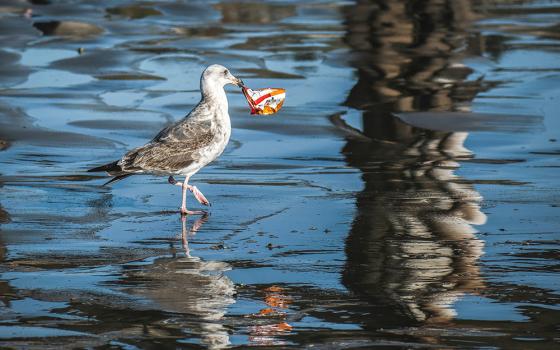
WASHINGTON -- Foundations affiliated with the Pontifical Council for Culture and an international biopharmaceutical company will work together to educate Catholics and others around the world about the benefits of adult stem-cell research.
Father Tomasz Trafny, an official with the Vatican agency, and Dr. Robin L. Smith, chairman and chief executive of NeoStem, announced the collaboration at a May 25 news conference in New York.
"Through educational initiatives with NeoStem and sponsorship of scientific research programs involving cutting-edge adult stem-cell science which does not hurt human life, we come one step closer to a breakthrough that can relieve needless human suffering," Father Trafny said.
The culture council's foundation -- called STOQ International, for Science, Theology and the Ontological Quest -- had made an initial economic commitment of $1 million, the priest said. NeoStem's involvement is through its Stem for Life Foundation.
One of the first fruits of the collaboration will be an international, interdisciplinary conference at the Vatican in 2011 on adult stem-cell research. The Vatican and NeoStem also hope to develop educational programs, publications and academic courses that will address the scientific, theological and philosophical questions surrounding stem-cell research.
"We want to be able to deliver to our pastors, to our bishops" information that will help them respond to the bioethical questions raised by Catholics at the local level, Father Trafny said. "We need to understand the technologies, the science, many things, in order to know what kinds of answers we need to provide for them."
He said many see the church as an authority that demands obedience without question from its followers, but the church also wants to be able to tell its followers that they should do what the church says because "we have the experience, we've done the research and we discovered this is the best choice."
The priest noted that the Catholic Church has long been a supporter of adult stem-cell research but opposes embryonic stem-cell research, which requires the destruction of human embryos.
"We consider ending suffering, sickness and disability an urgent task," he said. "A lot of people think the church is against science, but the official teachings of the church strongly underline the fact that science and faith are complementary to each other."
Smith, whose company has offices in the United States and China, said she thought the new collaboration would "have a lasting positive impact on medicine, as well as how patients are treated around the world."
NeoStem holds exclusive worldwide rights to VSEL (very small embryonic-like) stem-cell technology, which Smith said has the potential of achieving "the positive benefits associated with embryonic stem cells without the ethical or moral dilemmas as well as other negative effects associated with embryonic stem cells."
"For over 40 years, physicians have been using adult stem cells to treat various blood cancers, but only recently has the promise of using adult stem cells to treat a significant number of other diseases begun to be realized," she added.
Smith said her company's alliance with the Vatican would help to "increase public perception of stem cells" and "train a new generation of future academicians and ethicists" by developing bioethics courses for the university and high school level.
"We will be at the forefront of efforts to discover exactly what (adult) stem cells can do," she said. "We intend to make a difference in the lives of those who need it the most."
Father Trafny said the project would likely extend beyond NeoStem to include other bioethical firms and scientists.
"We want to develop an extensive collaboration," he said. "The world is being dominated more and more by science and technology."
During a question-and-answer period, Father Trafny fielded questions about exactly where the $1 million Vatican contribution had come from.
"Lots of donors came and offered support because people are worried about the education of children" and about providing them with "a clear ethical vision" that will serve them in the future, he said. "A lot of misunderstandings in society came about because people were not well informed about science, its relationship with the Catholic Church and why we should work together."
Father Trafny said he found it "a very funny thing" that the media in Europe and America had very different questions about the collaboration.
"When you talk to Europeans, it's difficult to talk to them about religion and science. There is a strong sense of 'why should the church be involved?'" he said. "But for Americans, that is a normal thing. For Americans, everyone talks about the money. Europeans would never ask."
In a separate development regarding stem cells, the Vatican in April expressed strong support for a new international project for adult stem-cell research. The initiative was announced at a meeting in Rome April 23.
The project, led by the University of Maryland School of Medicine in Baltimore, established a consortium of researchers from several Italian health institutes, including the Vatican-owned Bambino Gesu Hospital in Rome. The effort will focus on intestinal stem cells, a relatively new field of study.


